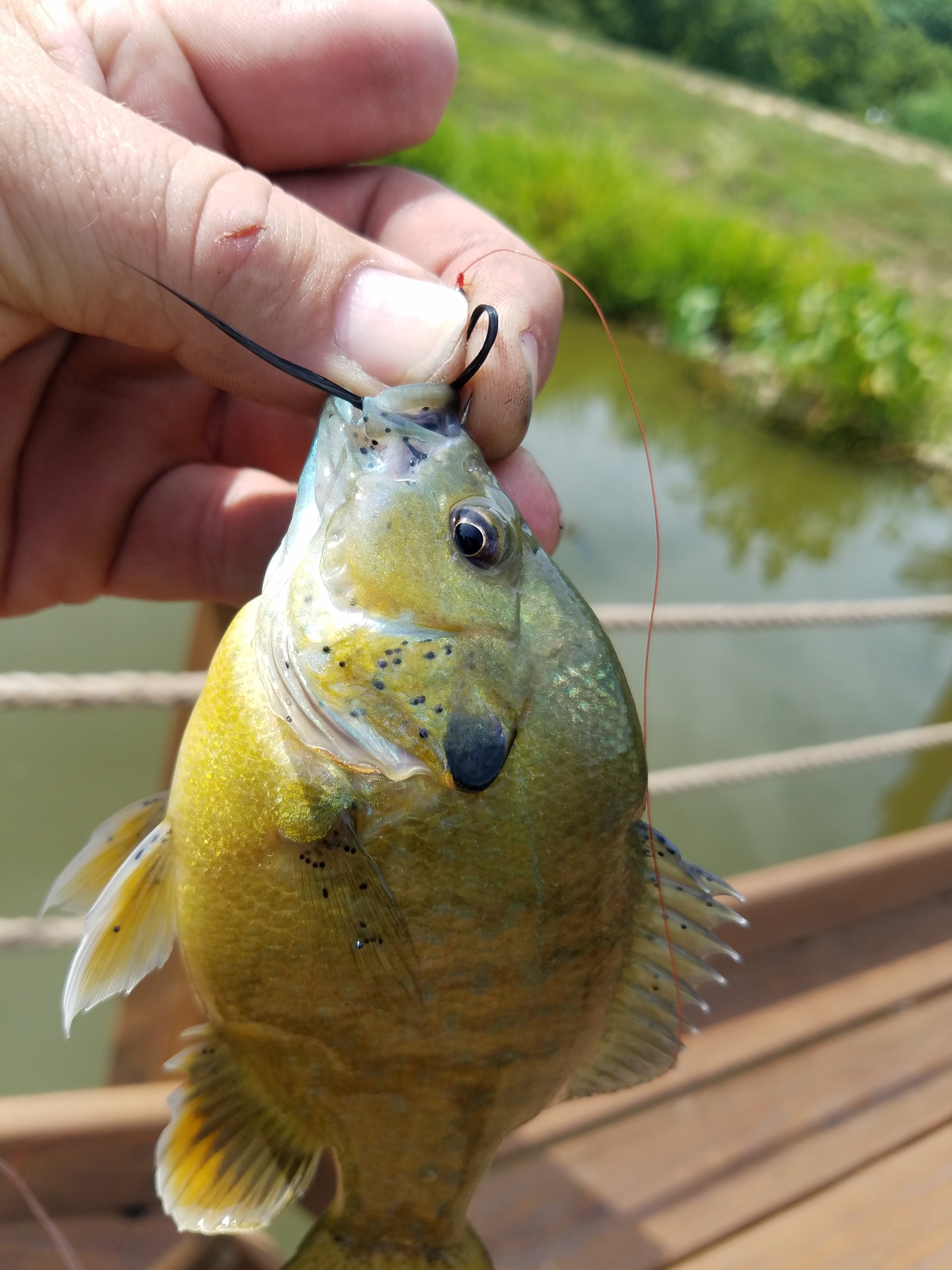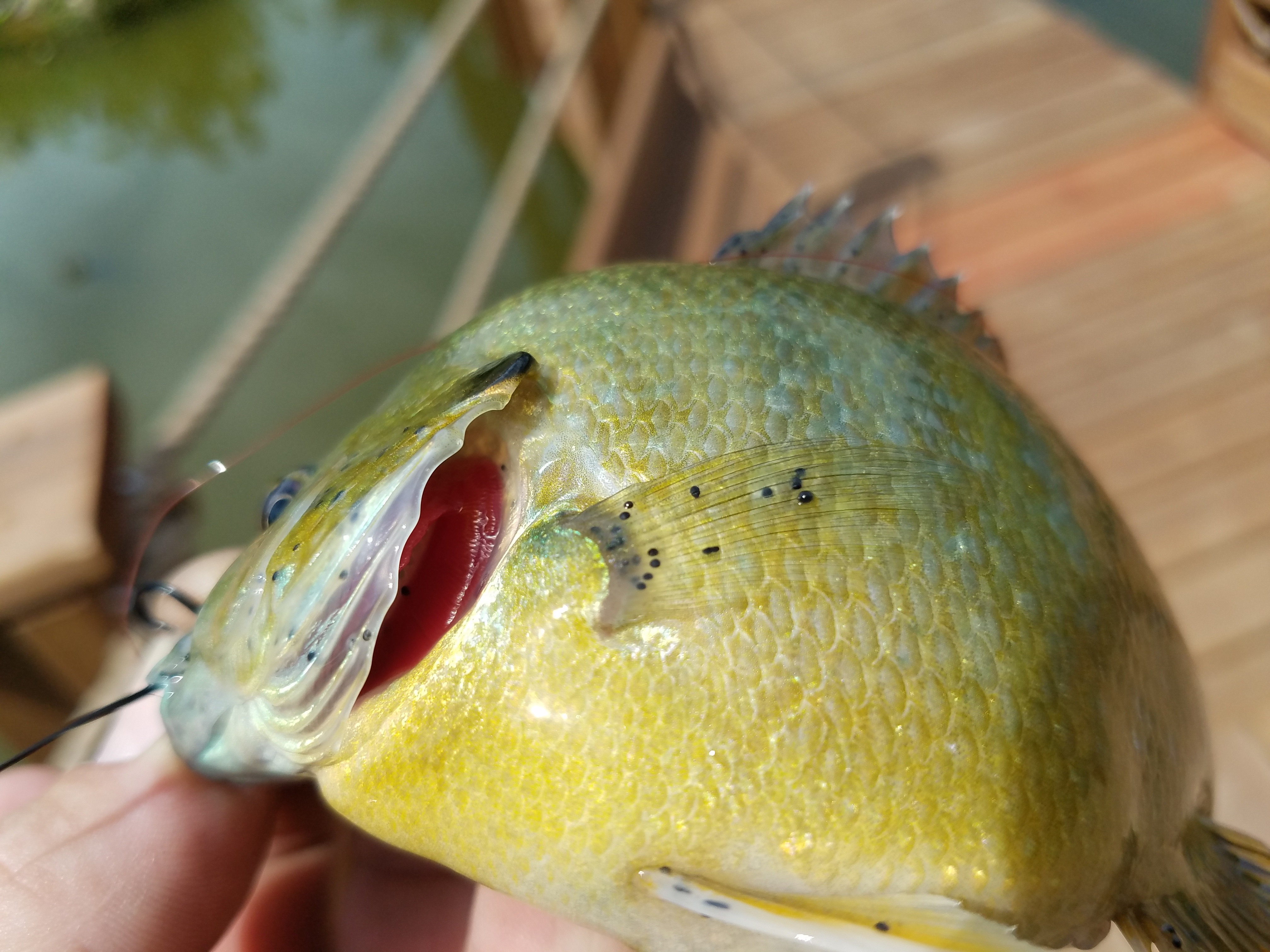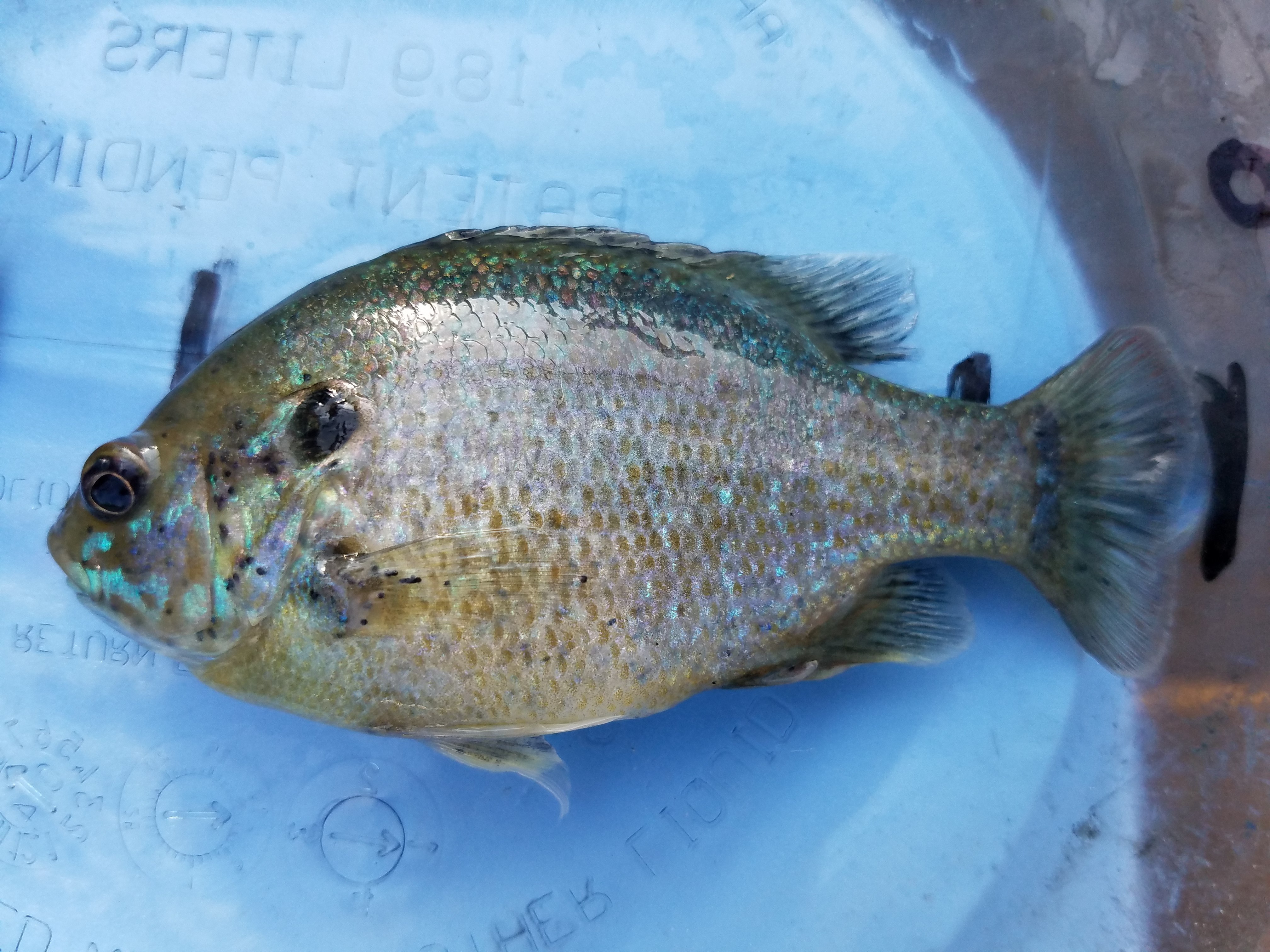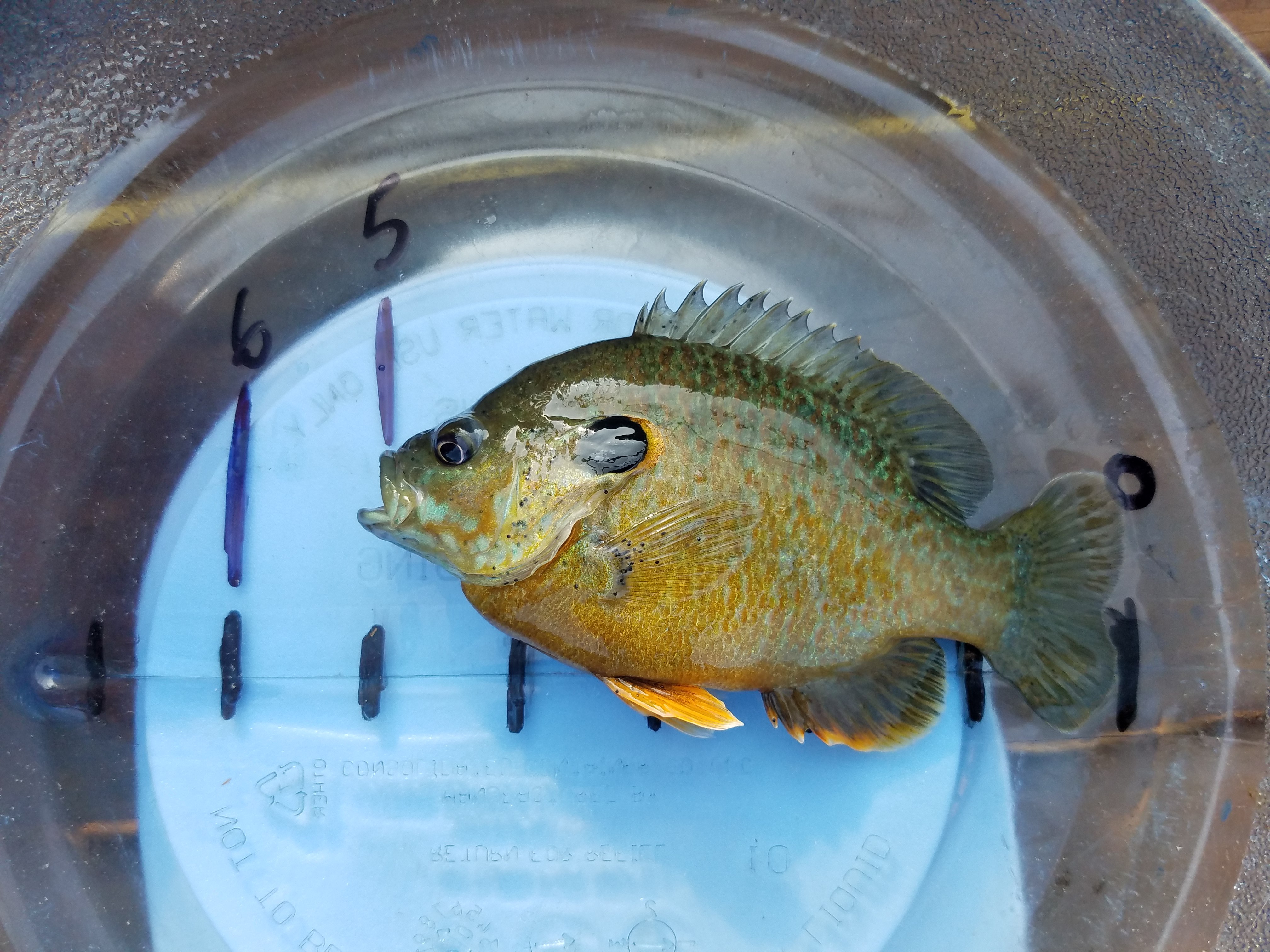Fish Parasites - 08/01/18 03:54 PM
Well, this was supposed to be a brag thread on how fat my newly stocked fish are becoming so I will get that out of the way first off...My cheapo scale from Harbor Freight worked out of the box, but did not work the first time I needed it at the pond. So much for figuring relative weights. It was fun fly fishing my pond for the first time last week and I caught a few RES and a good number of HBG, no HSB yet. They were all in good to fat condition with the exception of a common infection of parasites...Fish lice? Any discussion is appreciated...


The pond had a secchi clarity of 18 to 20 inches all last week. It has always appeared to be very fertile and the color changes every few days from greens to browns and back around again as the algae blooms come and go. It used to be a cattle watering hole, but was drained and de-mucked in 2016 and was stocked with game fish this spring.




The pond had a secchi clarity of 18 to 20 inches all last week. It has always appeared to be very fertile and the color changes every few days from greens to browns and back around again as the algae blooms come and go. It used to be a cattle watering hole, but was drained and de-mucked in 2016 and was stocked with game fish this spring.





